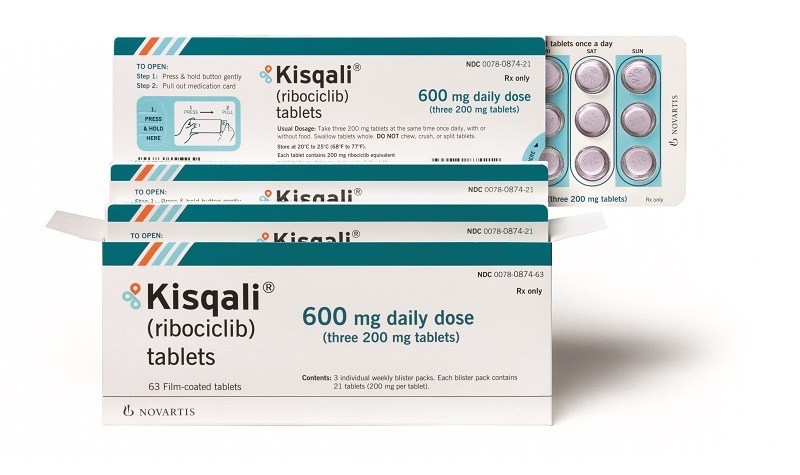Novartis said that its CDK4/6 inhibitor Kisqali (ribociclib) in combination with fulvestrant could deliver a statistically significant improvement in overall survival in a phase 3 trial, called MONALEESA-3.

Image: Kisqali product and packaging. Photo: courtesy of Novartis AG.
Subscribe to our email newsletter
The late-stage trial assessed the efficacy and safety of Kisqali plus fulvestrant combination in postmenopausal women having hormone-receptor positive, human epidermal growth factor receptor-2 negative (HR+/HER2-) advanced or metastatic breast cancer. The drug regimen was evaluated in both the first-line and second-line settings.
According to Novartis, MONALEESA-3 is the second phase 3 trial in which Kisqali combination therapy achieved the key secondary endpoint of overall survival at the pre-planned interim analysis.
Novartis Oncology president Susanne Schaffert said: “We are thrilled that Kisqali combination therapy again has demonstrated improved overall survival for patients with HR+/HER2- advanced breast cancer – first in pre-menopausal and peri-menopausal women in MONALEESA-7, and now in post-menopausal women in MONALEESA-3.
“We will continue to reimagine cancer to help patients live longer, and also improve quality of life as we work towards finding a cure for this incurable disease.”
The Swiss pharma company said that no new safety signals were noted during the MONALEESA-3 trial, while adverse events were on par with previously reported phase 3 trial results.
Kisqali has approvals in more than 75 countries, including the US and European Union member states.
The CDK4/6 inhibitor was first approved by the US Food and Drug Administration (FDA) in March 2017 followed by the European Commission (EC) in August 2017, based on the results of the MONALEESA-2 trial. The two approvals are for the use of the drug as initial endocrine-based therapy in combination with an aromatase inhibitor for postmenopausal women having HR+/HER2- locally advanced or metastatic breast cancer.
The CDK4/6 inhibitor in combination with an aromatase inhibitor was approved FDA in July 2018 as an initial endocrine-based therapy for the treatment of pre-, peri- or postmenopausal women, and also indicated for use in combination with fulvestrant as first- or second-line therapy in postmenopausal women. In December 2018, the EC followed suit in December 2018 by expanding the indication of Kisqali.
 Advertise With UsAdvertise on our extensive network of industry websites and newsletters.
Advertise With UsAdvertise on our extensive network of industry websites and newsletters.
 Get the PBR newsletterSign up to our free email to get all the latest PBR
news.
Get the PBR newsletterSign up to our free email to get all the latest PBR
news.

